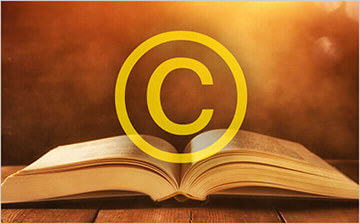Navigating the world of book publishing is exciting but complex, especially when it comes to protecting your intellectual property. One critical aspect every author must understand is book copyright. Whether you’re self-publishing, working with a traditional publisher, or engaging a hybrid publisher, knowing your rights and how copyright works is essential. This article breaks down the fundamentals of book copyright and what authors need to consider to safeguard their creative work.
What is Book Copyright?
Copyright is a legal protection granted to creators of original works, including books, giving them exclusive rights over the use and distribution of their work. It ensures that no one else can reproduce, distribute, perform, or display the book without the author’s permission. For authors, copyright provides control over their creative expression and a means to monetize their work.
How Does Copyright Apply to Books?
When you write a book, copyright protection begins automatically the moment your work is fixed in a tangible form—such as written on paper or saved digitally. You don’t need to register the copyright for the protection to exist, but registration with the relevant authority (like the U.S. Copyright Office) offers additional legal advantages, especially if you ever need to enforce your rights in court.
Duration of Copyright Protection
Typically, copyright for a book lasts for the lifetime of the author plus 70 years after their death. This extended period allows authors and their heirs to benefit financially and control the use of the work for a long time. In cases of joint authorship, the copyright duration is calculated based on the last surviving author’s death.
What Rights Does Copyright Grant Authors?
Copyright gives authors several exclusive rights, including:
-
The right to reproduce the work.
-
The right to create derivative works (like adaptations or translations).
-
The right to distribute copies of the work.
-
The right to publicly perform or display the work.
Understanding these rights is crucial because they determine how your book can be used by others and how you can license or sell these rights.
Copyright Considerations When Working with a Hybrid Publisher
In recent years, hybrid publishers have become a popular option for authors. These publishers blend elements of traditional publishing with self-publishing, often offering more control and transparency to the author. However, one of the key questions authors face is about copyright ownership when partnering with a hybrid publisher.
Unlike traditional publishers who typically require full copyright transfer, hybrid publishers often allow authors to retain copyright ownership while providing publishing services. This means authors keep control over their work’s rights and have more freedom to exploit their book in different ways.
It’s important to carefully review your publishing agreement with a hybrid publisher to understand who holds the copyright, what rights you may be licensing, and any limitations on your control over the book. Protecting your copyright while leveraging the benefits of a hybrid publisher’s expertise is a balancing act every author should navigate thoughtfully.
Common Copyright Myths Authors Should Avoid
-
Myth 1: “I need to register my book’s copyright for it to be protected.”
Truth: Copyright protection is automatic upon creation, but registration strengthens legal enforcement. -
Myth 2: “If I share my manuscript online, I lose my copyright.”
Truth: Sharing does not forfeit copyright but be cautious about how and where you share to prevent unauthorized use. -
Myth 3: “I can’t use any part of other books in mine.”
Truth: Fair use allows limited use for commentary, criticism, or parody, but always be careful to avoid infringement.
How to Protect Your Book Copyright
-
Keep records: Save drafts, emails, and any documentation proving you created the work.
-
Register your copyright: Especially if you plan to enforce your rights legally.
-
Use copyright notices: Place a clear copyright statement in your book.
-
Understand contracts: Whether with a hybrid publisher or other entities, know your rights and restrictions.
-
Monitor infringement: Be vigilant about unauthorized copying or distribution of your book.
Conclusion: Empowering Authors Through Copyright Knowledge
Copyright is the cornerstone of protecting your literary creation. For authors considering the evolving publishing landscape—including options like a hybrid publisher—understanding how copyright works empowers you to make informed decisions and retain control over your work. By taking the right steps to secure and manage your copyright, you ensure your creative voice is respected and your rights are defended throughout your publishing journey.







